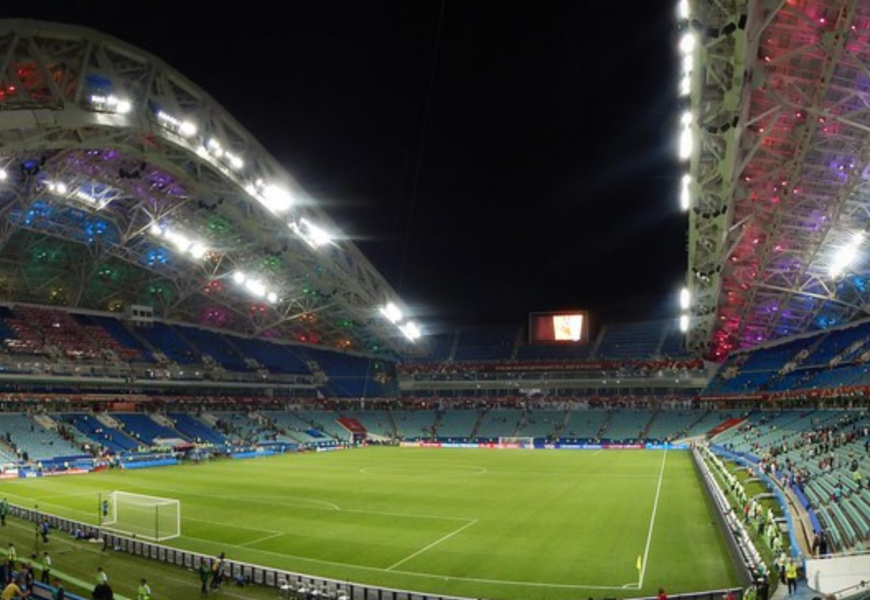Photo Courtesy of Flickr
The FIFA World Cup, currently being played in Qatar, may seem to some like just another sporting event, a way to bring the world together over a shared pastime. In reality, it is much more than that.
Like other large-scale international sporting events, the World Cup is also a stage for diplomacy, controversy, and politics, and the 2022 World Cup is no exception to this. There have been many politically-charged moments throughout the tournament so far. Ahead of the matchup between Iran and USA, Iran demanded that the USA team be kicked out of the World Cup due to a social media post involving an edited version of the Iranian flag. The social media team for US Soccer made the decision to post the edited flag as a protest, in solidarity with the women fighting for equal rights in Iran, but changed the posts after FIFA asked them to.
After a contentious few months in Iran, it is not surprising that protests against the Iranian government would appear at such a high-profile event. However, protest attempts have been squashed by Qatar before they can make it on international television. Protesting in Iran has landed thousands of protesters in jail and killed hundreds more. The protests began after the death of a young Iranian woman in custody after accusations of improperly covering her hair. Demonstrations have grown since then, some calling for the end of the Islamic Republic. During an event like the World Cup, Iran’s government definitely wants to make it seem that all is well on the home front, but in reality, this could not be further from the truth.
It’s no secret that world sporting events and politics go hand in hand. Highly televised sporting events that go on for several weeks, such as the Olympics and the World Cup, are great opportunities for countries to gain some extra attention on the world stage. For this reason, countries definitely want to be putting their best foot forward. Becoming associated with controversy, such as acts of protest during games, is not a good look for the Iranian government. Additionally, Iran and Qatar have very close diplomatic ties. This is a huge reason there have been crackdowns on protests during the World Cup.
The Iranian team has been placed in a difficult position. On one side, they are essentially acting as representatives of their country, and face pressure from the government to remain neutral as the government condemns and tries to squash the protests going on in the country. On the other, they have thousands of Iranian fans looking to the team to stand with them and condemn the actions of the government. At the beginning of the World Cup, the Iranian team made a statement by not singing along with the national anthem as it played in the stadium. They also wore black jackets over their uniforms. This was seen as a show of support for protesters. However, subsequent games have seen them singing the anthem again, albeit quietly. This enraged Iranian fans and was seen as the players submitting to the government.
The host nation has kicked fans from the stadiums for various reasons, including protests for LGBTQ+ right, worker rights for migrants, the Russian invasion, and support for Iranian women. Seven teams planned to wear armbands supporting the LGBTQ+ community. However, after FIFA threatened to impose sporting sanctions on those wearing the armbands, they stopped wearing them. In response, the German team took a photo with their hands over their mouths, showing their thoughts on how FIFA is silencing them. Fans wearing rainbow armbands have also been kicked out of stadiums by Qatar officials. There was also a pitch invader who waved a rainbow flag and wore a shirt that said “Save Ukraine” on the front and “Respect for Iranian Women” on the back. These are just a few examples of protests that have happened, but the general feelings from fans has been disapproval of how Qatar has handled several human rights issues. In a World Cup with so many great stories on the field, it’s unfortunate that all the stories off the field have trumped them.










